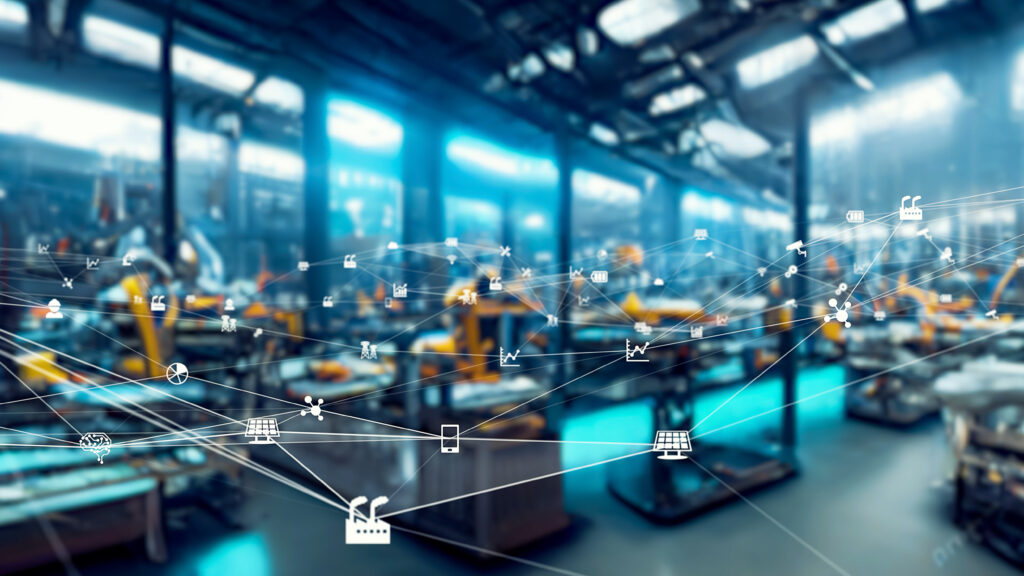Over the last few years, business leaders across the globe have been deluged with opportunities to transform their operations using artificial intelligence (AI). Now, there’s generative AI. Many of us have played with ChatGPT – GenAI’s most visible instantiation.
While GenAI is widely perceived as an information gathering/writing tool, I’d like to drill into its potential in the supply chain given my background in that field as well as procurement. So I’m going to explore the key question of whether GenAI can deliver value in this critical business function.
Is your company culture ready for GenAI? Most are not. Take the Acceleration Economy Cultural Impact of GenAI executive course to learn why and define the strategic steps you can take to leverage the technology and have an “AI Mindset.”
Let’s start with understanding the nuances between the two types of AI. Traditional AI is rule-based. It analyzes data and makes recommendations based on patterns that it finds, using instructions and rules designed by human experts. There are lots of supply chain use cases that leverage traditional AI; a frequently cited example is recognizing patterns in demand and then making forecast recommendations based on those patterns. Another example for traditional AI is chatbots that are “trained” in the responses to likely questions. Today, if you see an AI application at work, it is most likely traditional AI.
Ask Cloud Wars AI Agent about this analysis
GenAI uses data as a starting point but then proceeds in a different way. It uses machine learning techniques to digest large datasets, find relationships and patterns, and generate new content that resembles human-created content. For example, it can find patterns in existing music and use that to create new music. It can analyze patterns in the way a person writes, then finish paragraphs to complete a script. Or it can be of great value in drug discovery based on its understanding of a data set.
In marketing, traditional AI can analyze user purchases to recommend products that align with their buying patterns. GenAI can take that information and create unique marketing material targeted specifically at that client.
Improving Processes, Flagging Opportunities
When it comes to supply chains, traditional AI is the “machine” that automates repetitive tasks such as invoice processing or data entry, effectively replacing tasks formerly done by humans. It’s the workhorse that can lead to cost reductions by improving productivity, one set of tasks at a time. GenAI has a role in supply chains as well. By finding bottlenecks, inefficiencies, and process gaps within the supply chain, it can suggest process improvements. Traditional AI speeds up the tasks; GenAI flags potential process improvements.
Risk mitigation is a huge challenge for supply chain leaders. Traditional AI models analyze historical data and external events to predict potential risks such as supply disruptions. GenAI takes it a step further by factoring in a wider group of variables, then recommending contingency plans to mitigate the risks.
Demand planning is a dynamic, critical process in manufacturing. Traditional AI might be “trained” based on a set of known factors that influence demand – seasonality, capacity, demographics, or history. The advanced algorithms in GenAI can find patterns and insights that aren’t obvious to traditional AI applications – such as customer priorities or new competition. And because traditional AI models are built on historical data, they likely will miss timely developments such as unexpected weather or political events that can impact the ability to satisfy customer demand.
The more complexity in a supply chain, the more likely that GenAI will identify opportunities that traditional AI may miss. Particularly in manufacturing environments where there are multiple factors affecting raw material supply, logistics reliability, and production capabilities, GenAI can generate and assess “what-if” scenarios that are unique and creative.
The supply chain community has benefited mightily from traditional AI. Companies that have upgraded their business tools to include those that employ traditional AI have been able to improve decision-making faster than they could when the expertise was coming solely from humans.
But now, GenAI offers the opportunity to take almost every step and get a better result – more insight, more factors considered, more interdependencies identified, more options to improve, more creativity. GenAI will shake up the supply chain in a good way, as it brings new insights and options to traditional practices.











